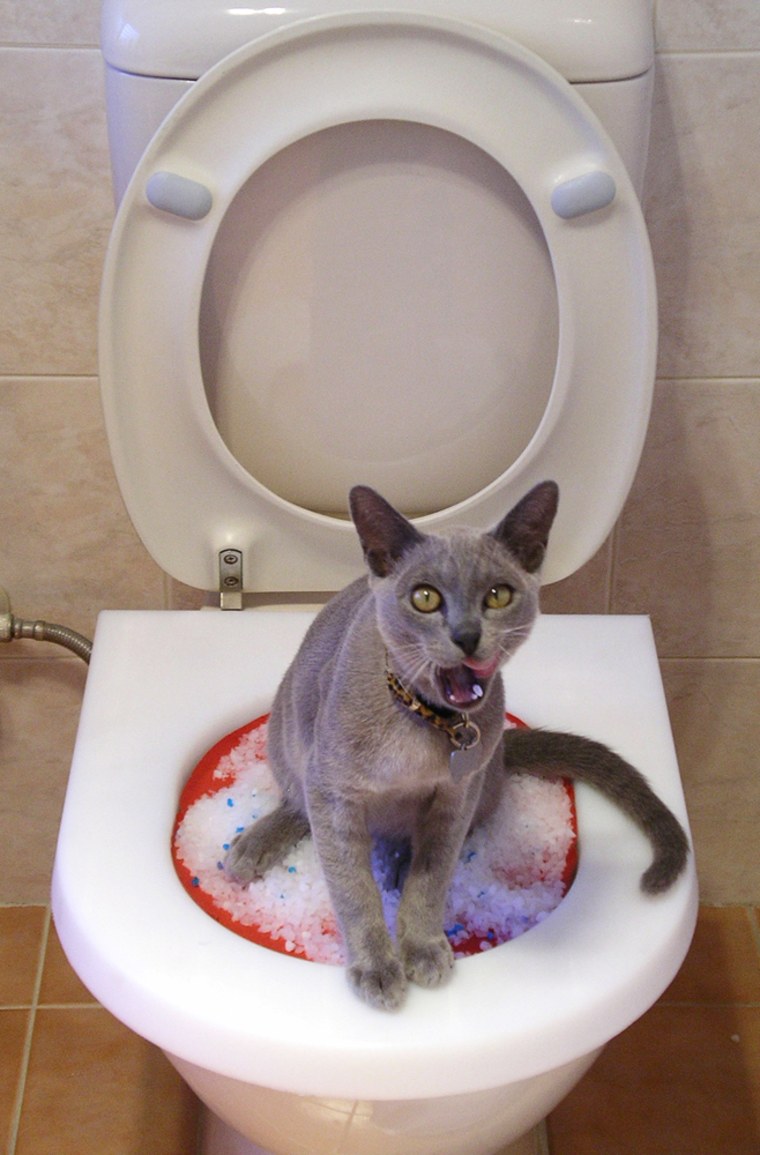Avoid Plumbing Problems: Never Flush Cat Poop Down Your Toilet - Professional Advice
Avoid Plumbing Problems: Never Flush Cat Poop Down Your Toilet - Professional Advice
Blog Article
Everyone has got their own individual piece of advice with regards to How to Dispose of Cat Poop and Litter Without Plastic Bags.

Introduction
As feline owners, it's important to bear in mind just how we throw away our feline buddies' waste. While it might appear convenient to flush cat poop down the toilet, this technique can have detrimental repercussions for both the environment and human health.
Alternatives to Flushing
Thankfully, there are much safer and a lot more accountable methods to throw away feline poop. Think about the adhering to alternatives:
1. Scoop and Dispose in Trash
The most usual method of taking care of cat poop is to scoop it right into a naturally degradable bag and toss it in the trash. Be sure to make use of a committed clutter inside story and deal with the waste promptly.
2. Usage Biodegradable Litter
Select naturally degradable feline clutter made from products such as corn or wheat. These litters are environmentally friendly and can be securely gotten rid of in the trash.
3. Hide in the Yard
If you have a backyard, take into consideration hiding cat waste in an assigned location far from veggie yards and water sources. Make sure to dig deep enough to avoid contamination of groundwater.
4. Set Up a Pet Waste Disposal System
Purchase an animal garbage disposal system specifically designed for cat waste. These systems utilize enzymes to break down the waste, lowering smell and environmental impact.
Health and wellness Risks
Along with ecological concerns, flushing cat waste can also posture health risks to human beings. Feline feces may include Toxoplasma gondii, a parasite that can cause toxoplasmosis-- a potentially severe disease, especially for expecting women and people with damaged immune systems.
Environmental Impact
Flushing feline poop introduces damaging virus and parasites right into the water, presenting a substantial danger to aquatic communities. These pollutants can negatively impact marine life and concession water high quality.
Conclusion
Liable pet possession prolongs beyond supplying food and sanctuary-- it also involves appropriate waste administration. By avoiding purging cat poop down the toilet and choosing alternate disposal approaches, we can decrease our environmental impact and protect human wellness.
Why You Should Never Flush Cat Poop Down the Toilet
A rose by any other name might smell as sweet, but not all poop is created equal. Toilets, and our sewage systems, are designed for human excrement, not animal waste. It might seem like it couldn’t hurt to toss cat feces into the loo, but it’s not a good idea to flush cat poop in the toilet.
First and foremost, assuming your cat uses a litter box, any waste is going to have litter on it. And even the smallest amount of litter can wreak havoc on plumbing.
Over time, small amounts build up, filling up your septic system. Most litter sold today is clumping; it is made from a type of clay that hardens when it gets wet. Ever tried to scrape old clumps from the bottom of a litter box? You know just how cement-hard it can get!
Now imagine just a small clump of that stuck in your pipes. A simple de-clogger like Drano isn’t going to cut it. And that means it’s going to cost you big time to fix it.
Parasitic Contamination
Believe it or not, your healthy kitty may be harboring a nasty parasite. Only cats excrete Toxoplasma in their feces. Yet it rarely causes serious health issues in the cats that are infected. Most people will be fine too if infected. Only pregnant women and people with compromised immune systems are at risk. (If you’ve ever heard how women who are expecting are excused from litter cleaning duty, Toxoplasma is why.)
But other animals may have a problem if infected with the parasite. And human water treatment systems aren’t designed to handle it. As a result, the systems don’t remove the parasite before discharging wastewater into local waterways. Fish, shellfish, and other marine life — otters in particular — are susceptible to toxoplasma. If exposed, most will end up with brain damage and many will die.
Depending on the species of fish, they may end up on someone’s fish hook and, ultimately on someone’s dinner plate. If that someone has a chronic illness, they’re at risk.
Skip the Toilet Training
We know there are folks out there who like to toilet train their cats. And we give them props, it takes a lot of work. But thanks to the toxoplasma, it’s not a good idea.

As a reader about How to Dispose of Cat Poop and Litter Without Plastic Bags, I imagined sharing that excerpt was really useful. For those who enjoyed reading our blog post if you please make sure you remember to share it. Bless you for your time. Come back soon.
Automated Marketing Report this page